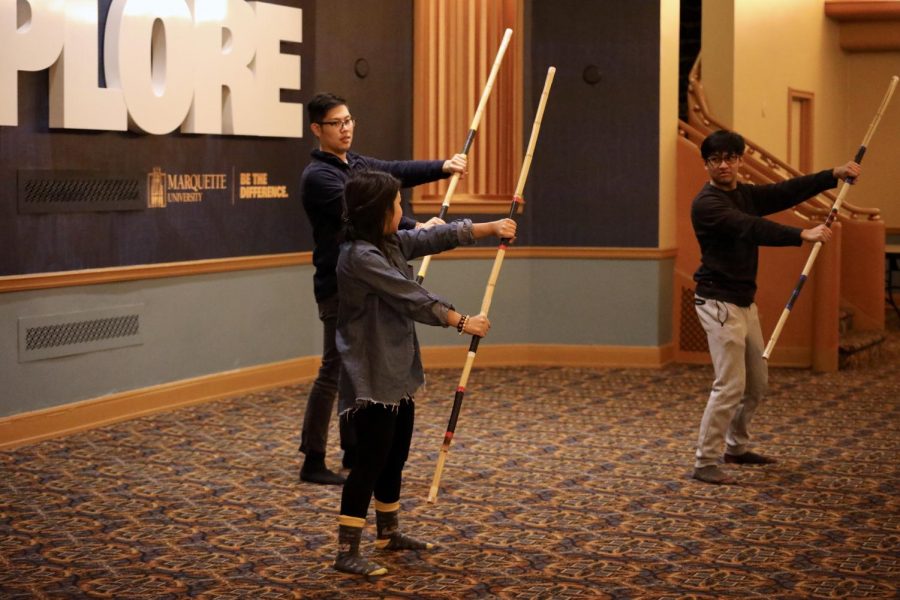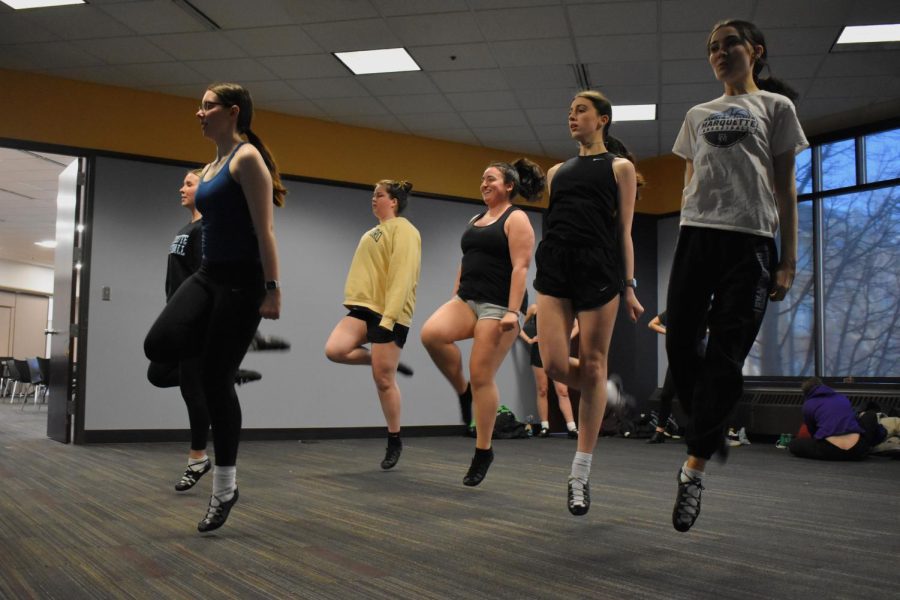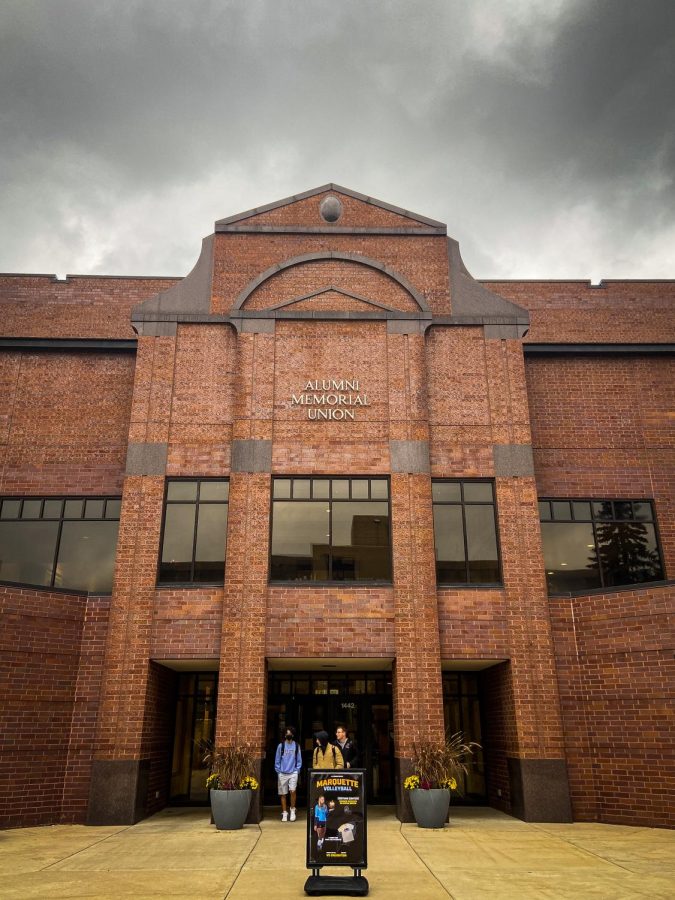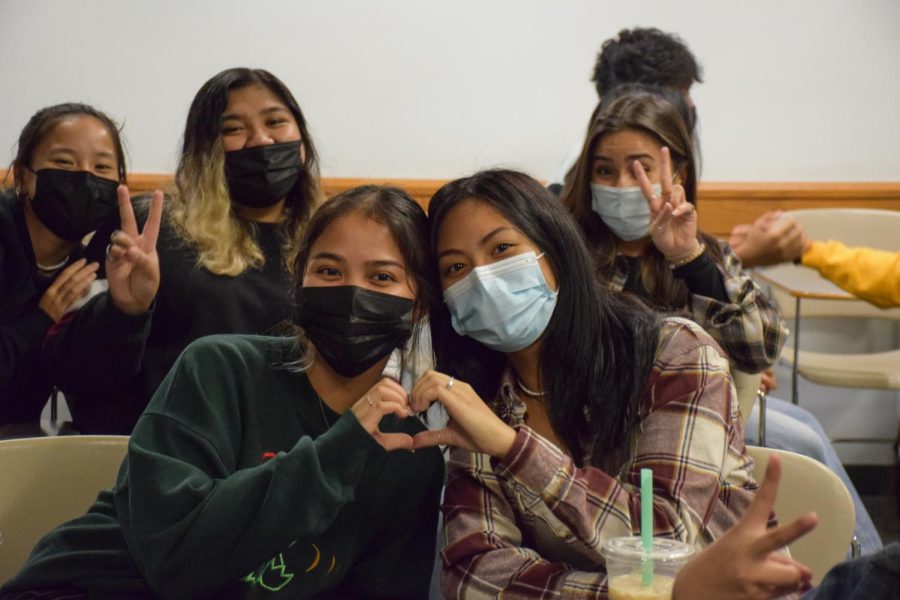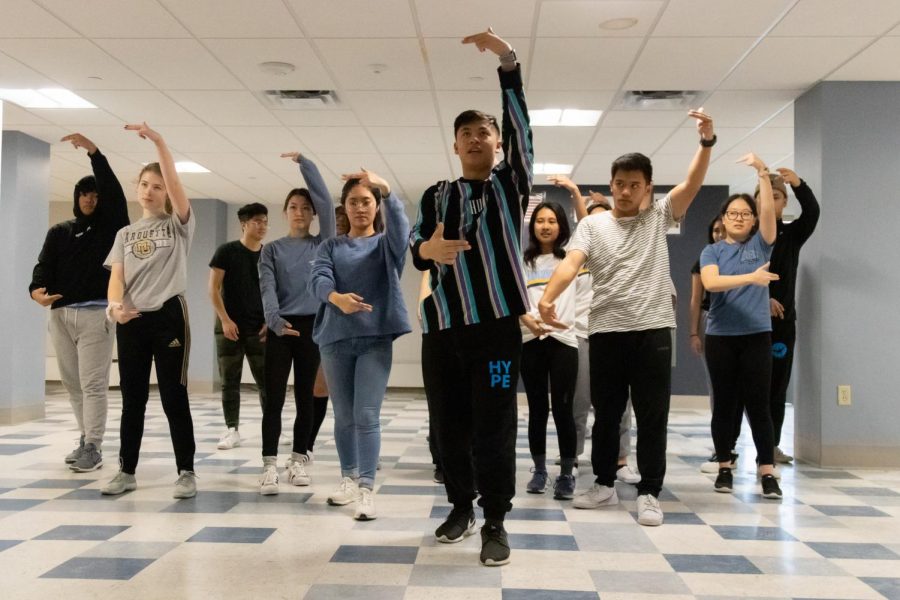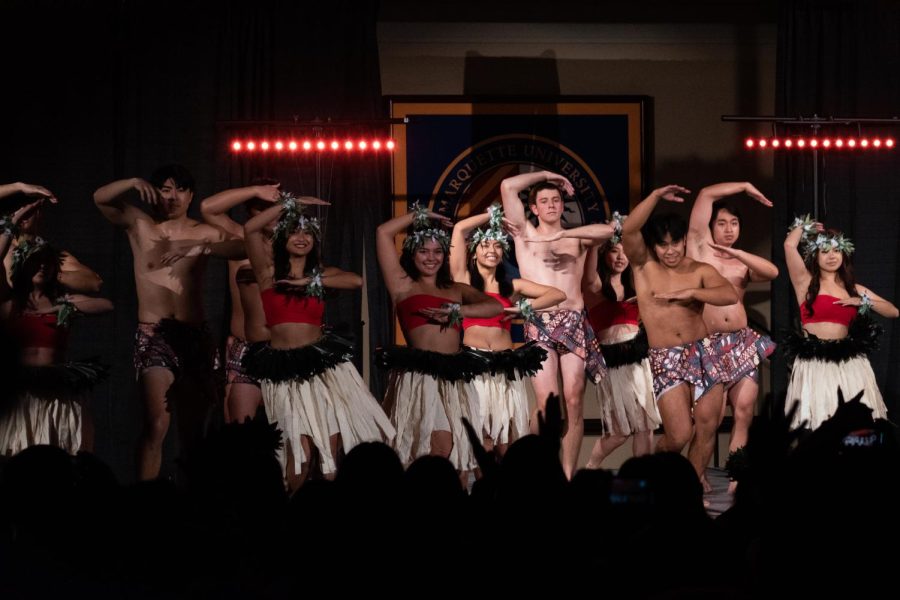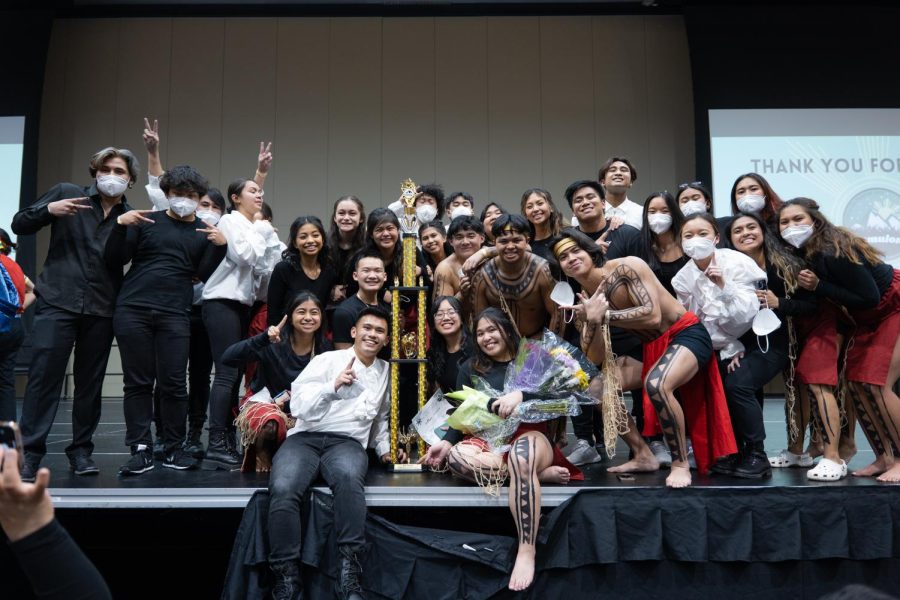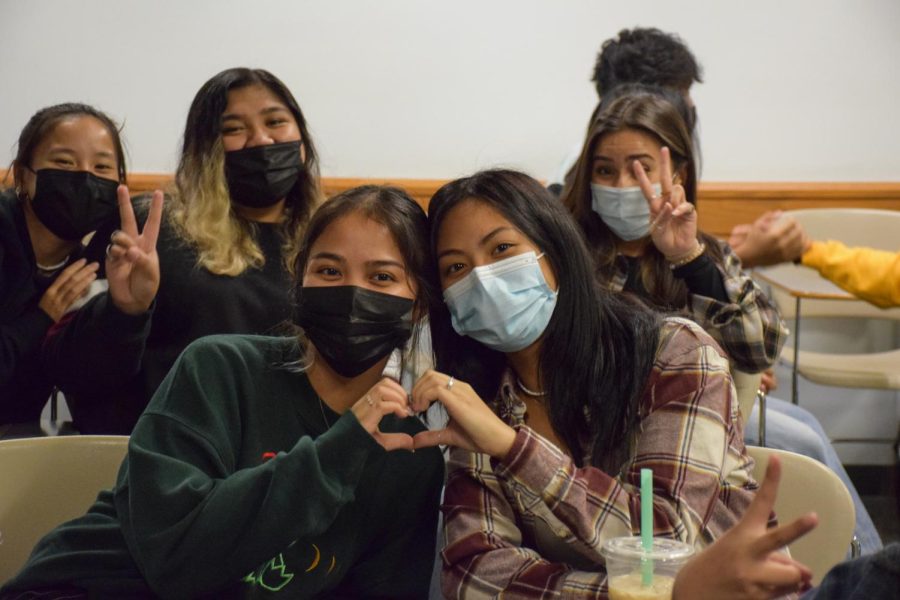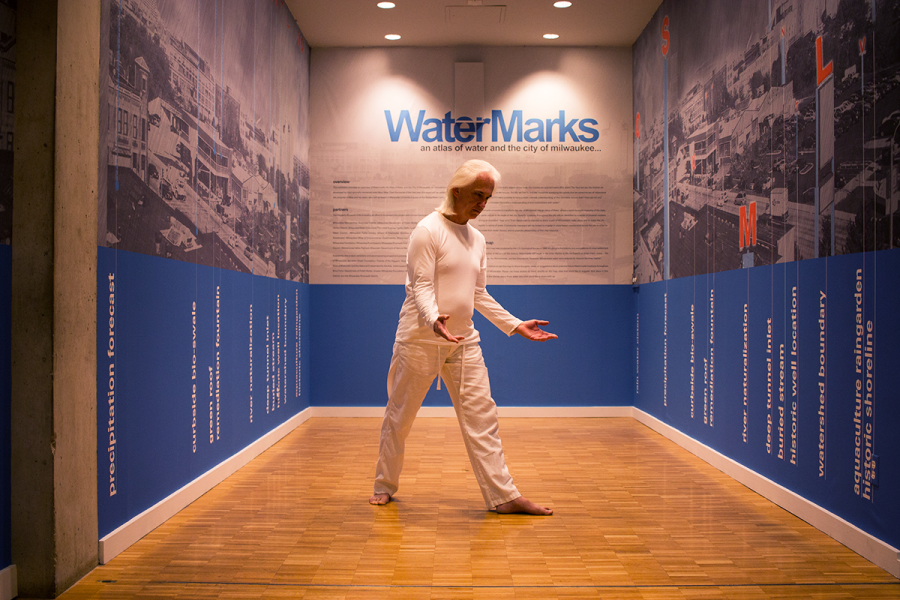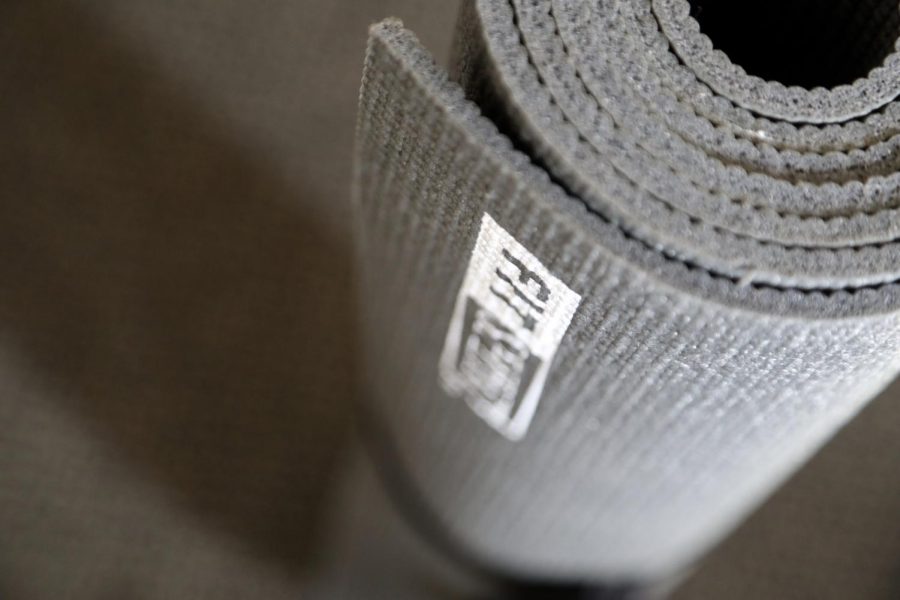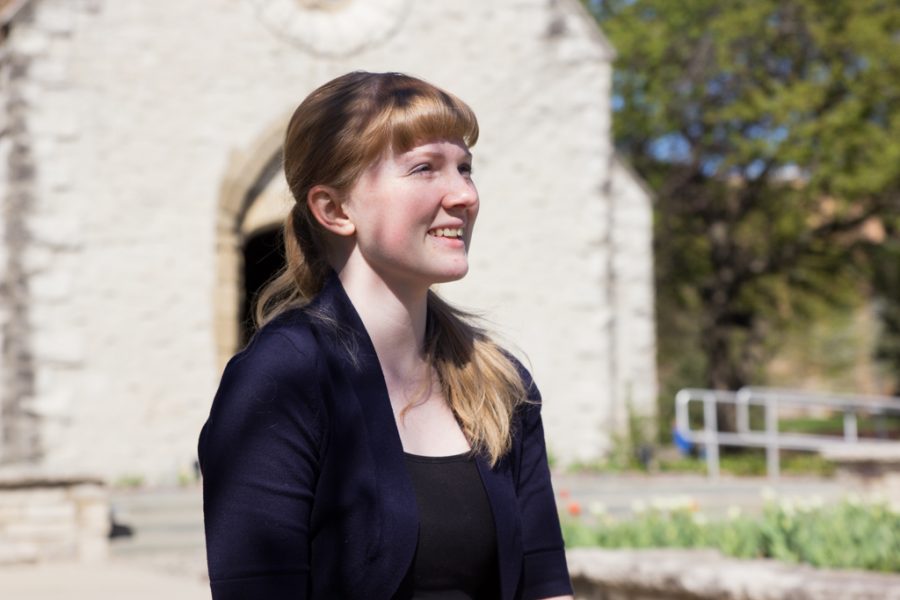Hype Marquette, a student hip-hop dance group, finished one of their last rehearsals for their spring semester show last year. They left Practice Space East with their heads held high.
Little did the team know, it would be the last time they would practice in that space. PSE was being transformed into the new Sendik’s Fresh2Go.
Tajah Lynch, the co-director of Hype and a junior in the College of Arts & Sciences, was blindsided by the news over the summer. She reached out to the Event Management Office to find out where the group’s replacement practice space would be.
Lynch had questions, and she wanted answers. “What do you mean PSE will be gone? We practice there. What happens to our time? What happens to our space?”
Lynch worked with Event Management to reschedule the rehearsals. But the result was less than desirable. The additional spaces in Humphrey Hall or the Alumni Memorial Union weren’t guaranteed to have mirrors. The flooring might be slippery, hard, dirty and pose a likelihood of injury. Plus, it would be hard to work on spacing because of columns in some of the rooms.
Event Management declined to comment about the lack of practice spaces.
Hype members couldn’t help but feel like an afterthought with the changes.
“Instead of just tearing it down and saying here’s a grocery store, it would have been nice if they would have built something else up first before tearing down one of the only things we had,” Lynch said. “It makes us feel like the performing groups aren’t important to the Marquette campus.”
She’s not alone. Other Marquette dance groups have also been displaced from PSE.
“(PSE) was our favorite practice space. And they got rid of it. It was the most open … two groups could practice at the same time,” said Heather Belingon, a senior of the College of Arts & Sciences and vice president of the Bayanihan Student Organization.
Jeff Janz, associate vice president for the Division of Student Affairs, said the loss of PSE was unfortunate, but it was necessary to fulfill another high priority of students.
Displaced student organizations now practice in spaces like the Helfaer Recreation Center and the AMU.
“A lot of people used the old space where the new grocery store is. A lot of those people needed to find a new home. So we were able to help some of them out,” Scott Anderegg, assistant director of recreational sports, said.
In addition to Event Management working with student groups to find new practice spaces, the Office of Residence Life and Rec Sports are working to find new practice spaces across campus, in residence halls and recreational facilities.
Annette Conrad, associate director of Event Management, knew the establishment of a Sendik’s on campus introduced a challenge for students who utilized PSE.
The shortage of practice spaces will be eased come fall 2018 when new residence hall Wilde Commons opens.
“Having a variety of reservable spaces inside the new residence hall was absolutely a priority as the designs were being developed,” Rachel Tepps, coordinator of residence life programs with ORL, said.
Despite the frustration of losing PSE, some groups are content with the new spaces. The Irish dance group utilizes the basement of Straz every Sunday and find the space more than adequate, said Kaitlin Shea, co-president of the Irish group, Saoirse, and sophomore in the College of Nursing.
But there still are drawbacks to the spaces: There are no mirrors, and the floor is carpeted.
“You can’t really hear our shoes,” Shea said. “It would be nice if there was a space for the dance groups that had mirrors and actual flooring.”
Not only can poor flooring ruin dancer’s shoes, but it can pose a threat to dancers’ health, Catey Ott Thompson, adjunct professor of dance at Marquette, said.
Professional, sprung dance floors act as support systems that absorb shocks that come from hitting or landing on the floor a certain way. Dancing on unsafe floors can lead to chronic muscle, ligament or bone pain and stress fractures.
New spaces were made available on the reservation website — but the process has become more complicated. Sometimes, student groups are accidentally double-booked by Event Management to use the same space at the same time, Belingon said.
She recalled multiple times last spring semester of being double booked during BSO’s preparation for their yearly Cultural Show.
“We would show up with our props, which are very difficult to transport, but find out that the space is being used by another group already,” Belingon.
Max Moloney, secretary of BSO and senior of the College of Arts & Sciences, said sometimes groups end up only utilizing a corner of the space because of the miscommunications.
Also, students don’t always receive confirmation emails from Event Management about their reservation, which is “crucial” to establishing practice space and time for their group, Belingon said. Even when they send follow up emails and reach out again, Event Management does not always respond.
Sometimes, if two spaces are needed to rehearse, which sometimes BSO needs, Event Management combines the two separate spaces.
“Things like that are actually a pretty regular occurrence,” Belingon said. “We are always expecting to be double booked whenever we show up for practice.”
The university hopes that with other Master Plan initiatives, more practice spaces will open up to help these student groups.
“(We) have emphasized the integration of space for student groups as we plan for new and renovated student life facilities on campus,” said Kathy Kugi-Tom, project manager of the Department of Facilities Planning and Management.
“Dance on campus needs to be discussed more. It’s the best-kept secret, how much dance is on campus and how hard everyone is working on their craft and their voice,” Ott Thompson said. “The more we talk about the shortage, the better.”

